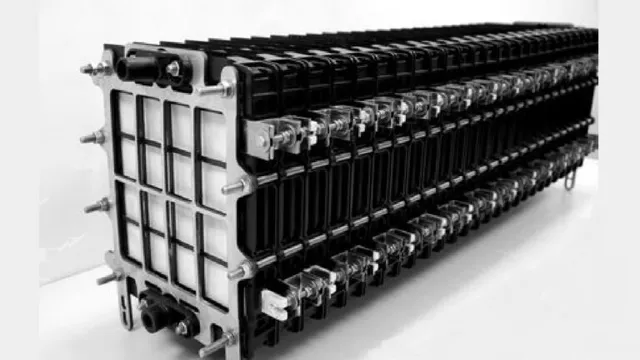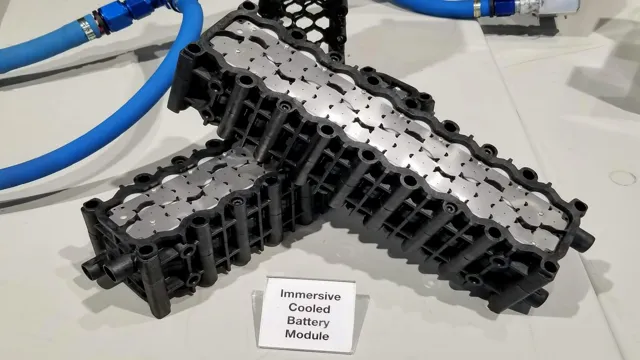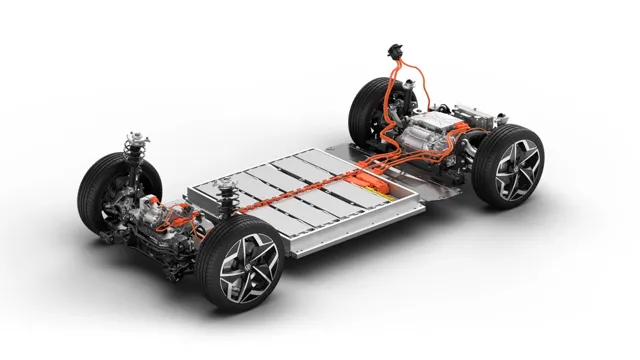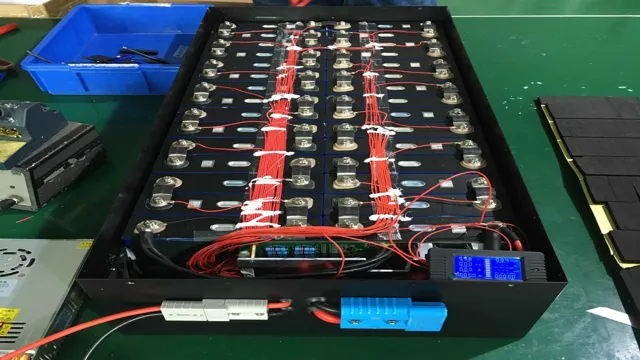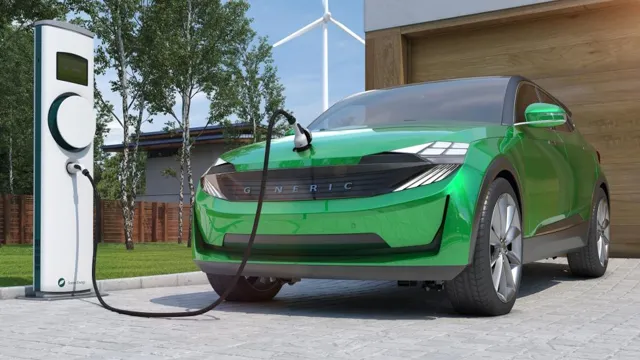Revolutionizing Electric Cars: The Air-Fueled Battery Technology You Need to Know About
Electric vehicles are becoming increasingly popular as environmental concerns and the need for sustainable solutions have become pressing issues in society today. However, the one limiting factor that has kept electric cars from completely replacing gas-powered vehicles is their reliance on traditional rechargeable batteries. Current electric vehicle batteries, or EV batteries, require periodic recharging, which largely relies on the electrical-power grid.
This situation is gradually changing with a new breakthrough technology that promises a green energy future for electric vehicles. Enter the air-fueled battery, a prototype alternative to the EV battery, which uses air and carbon dioxide to generate electricity and has no need for recharging. The air-fueled battery technology is an exciting development because it offers a zero-emissions solution that avoids depleting scarce natural resources.
The battery uses air and fuel to generate electricity, making it non-toxic, economical, and sustainable. The air-fueled battery technology also provides a new level of safety for drivers and passengers as it is non-flammable and less prone to overheating than traditional rechargeable batteries. Furthermore, the design of the air-fueled batteries is more compact, so this results in a more efficient use of space inside the car, which translates into a longer driving range for electric vehicles.
Excitingly, the air-fueled battery is being developed with the motor vehicle industry in mind and could be the solution to the green energy revolution. While the technology is still in the developmental stages, the promise of a battery that does not require recharging and is both eco-friendly and efficient makes it an increasingly attractive option for the electric vehicle market. The air-fueled battery could revolutionize transportation, make it easier to switch from gas-powered to electric vehicles, and ultimately contribute greatly to the global effort to reduce our reliance on fossil fuels.
What is an Air-fueled Battery?
An air-fueled battery for electric cars is a type of battery that uses air as its source of energy. Unlike traditional batteries that need to be recharged using an external power source, air-fueled batteries generate electricity by reacting with oxygen from the air. This makes them an attractive alternative to conventional batteries for electric cars, as they don’t require an expensive and heavy rechargeable component.
Instead, they rely on a constant supply of air, which is readily available and easy to replace. Air-fueled batteries are also more environmentally friendly than traditional batteries, as they don’t use toxic chemicals and can be recycled more easily. While air-fueled batteries aren’t yet widespread in the electric vehicle market, they hold a lot of promise for the future of sustainable transportation.
Exploring the Technology
An air-fueled battery is a type of battery that uses oxygen from the surrounding air as one of its reactants. These batteries are also known as metal-air batteries and are environmentally friendly as they don’t produce harmful byproducts. They work by combining a metal such as lithium, zinc, or aluminum with oxygen to create electrical energy.
As the metal reacts with oxygen, electrons are released, providing the necessary energy to power a device. One of the significant benefits of air-fueled batteries is their high energy density, which means they can store a lot of energy in a smaller space. However, they are currently not widely used due to their low efficiency and limited lifespan.
Despite these challenges, scientists are researching ways to improve the technology so that one day, air-fueled batteries may become a reliable and cost-effective option for powering our devices.
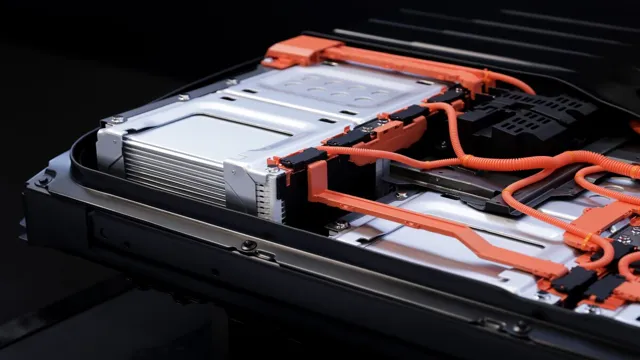
How it Works in Electric Cars
An air-fueled battery is a type of battery that uses oxygen from the air as one of the reactants. This technology is still in the development stage, but it has the potential to revolutionize the world of electric cars. Unlike conventional batteries, which use heavy and expensive metals like lithium and cobalt, air-fueled batteries are much lighter and cheaper to produce, making them ideal for electric vehicles.
The way it works is that oxygen from the air reacts with a metal electrode to produce electricity. The metal electrode is replenished by a separate tank of metal particles, which are fed into the battery as needed. This means that an air-fueled battery does not require heavy and expensive metals to store energy, making it more sustainable and cost-effective in the long term.
Overall, this new technology has the potential to make electric cars more affordable and accessible, while also reducing our reliance on fossil fuels.
Advantages of Air-fueled Batteries over Lithium-ion ones
An air-fueled battery for electric cars holds a range of advantages over conventional lithium-ion ones. For starters, air-fueled batteries are significantly lighter and more compact, making them ideal for powering electric vehicles that rely on weight and space optimization. Additionally, air-fueled batteries offer much longer operational durations than their lithium-ion counterparts, thanks to their ability to draw in air from the environment to power the chemical reactions required to generate electricity.
Furthermore, air-fueled batteries pose less of a fire risk, as they do not rely on potentially volatile lithium ions and other chemicals that can catch fire if exposed to too much heat or mechanical damage. In fact, air-fueled batteries are far more environmentally friendly, as they can operate using natural atmospheric gases, provided that they are properly designed and engineered. Overall, the air-fueled battery offers an exciting glimpse into the future of electric car technology, and may well play a pivotal role in the adoption of electric vehicles as a sustainable mode of transportation.
Eco-friendly Technology
Air-fueled batteries have gained a lot of popularity in recent times due to their eco-friendly nature. Compared to the widely used lithium-ion ones, these batteries use metal catalysts to generate electricity from oxygen. One of the most significant advantages of air-fueled batteries is their longer lifespan, which can last up to 10 times longer than lithium-ion batteries.
This means fewer batteries end up in landfills, hence reducing the environmental impact. They are also more energy-efficient and have a higher energy-to-weight ratio, making them ideal for use in electric cars and other heavy machinery. Another advantage is that air-fueled batteries are safer to use as they do not carry the risk of overheating and exploding, like lithium-ion batteries.
Additionally, they can be easily refilled with air, making them more cost-effective and sustainable. As we continue to search for sustainable and eco-friendly alternatives, air-fueled batteries show great potential in revolutionizing transportation and reducing our carbon footprint.
Lightweight and Efficient
Air-fueled batteries have numerous advantages over traditional lithium-ion batteries. Firstly, air-fueled batteries are much lighter than lithium-ion batteries, making them ideal for applications where weight is a concern, such as in electric vehicles or portable electronics. In addition, air-fueled batteries are also more efficient than lithium-ion batteries, as they only need a few components to function.
This results in a simpler and cheaper manufacturing process, driving down costs for consumers. Furthermore, air-fueled batteries are also able to last longer and have greater energy density than lithium-ion batteries, meaning they can last longer between charges and provide more power. Overall, air-fueled batteries present a compelling alternative to traditional lithium-ion batteries and are set to revolutionize the world of energy storage.
Cost-effective Production
Air-fueled batteries are becoming more popular due to their cost-effectiveness and advantages over lithium-ion ones. These batteries use air, instead of expensive metals like lithium, to produce energy. This means that they are cheaper to produce and can be made in larger quantities.
Additionally, air-fueled batteries have a longer shelf life because they do not degrade as quickly as lithium-ion batteries. They are also more environmentally-friendly because they do not use toxic metals and are completely recyclable. One potential drawback of air-fueled batteries is that they do not provide as much power as lithium-ion ones, which may limit their use in some applications.
However, as technology continues to improve, this may no longer be an issue. Overall, air-fueled batteries are a promising alternative to traditional lithium-ion batteries and offer many advantages in terms of cost-effectiveness, environmental impact, and longevity.
Challenges and Limitations of Air-fueled Batteries
Air-fueled batteries have become a topic of interest in the electric car industry as an alternative to traditional lithium-ion batteries. However, these batteries still face challenges and limitations. One major challenge is the high cost of producing air electrodes, which are essential components of the battery.
Additionally, the performance of air-fueled batteries is affected by humidity and temperature, making them less reliable in certain environments. Another limitation is the limited range compared to traditional lithium-ion batteries, as they require a larger volume of air to generate the same amount of power. Despite these challenges, the push towards more sustainable energy sources and the potential for cheaper and long-lasting batteries, make air-fueled batteries a promising technology for the future of electric cars.
Scaling up Production
Air-fueled batteries have promising potential for revolutionizing the energy storage industry. However, scaling up production for these batteries poses several challenges and limitations. One of the major downsides of air-fueled batteries is their high cost in terms of materials and manufacturing processes.
Their complex design and stringent production requirements make mass production difficult, which in turn makes it difficult to bring the costs down. Additionally, air-fueled batteries have limitations when it comes to their energy density. As compared to other types of batteries, they do not store as much energy per unit of weight or volume, which makes them less viable for heavy-duty applications.
Despite these challenges, researchers and manufacturers are actively working towards improving the scalability and efficiency of air-fueled batteries. With further advancements in materials science and manufacturing technologies, air-fueled batteries may eventually become a competitive and sustainable energy storage solution for a wide range of applications.
Addressing Durability Concerns
Air-fueled batteries have the potential to be a game-changer in the world of energy storage. These batteries draw oxygen from their surroundings to use as a reactant with the battery’s fuel. While they offer several benefits over traditional batteries, durability remains a concern.
One of the main challenges with air-fueled batteries is controlling the reactions at the cathode. The buildup of unwanted byproducts can lead to electrode corrosion and decrease the battery’s lifespan. Additionally, the batteries are sensitive to moisture, which can lead to degradation if exposed.
These challenges are being addressed through innovative developments such as protective coatings, new cathode materials, and advanced manufacturing techniques. Despite these limitations, air-fueled batteries have the potential to be a sustainable and cost-effective solution for powering various applications, including electric vehicles and renewable energy storage.
The Future of Air-fueled Batteries for Electric Cars
The air-fueled battery for electric cars is an exciting technological development that has the potential to revolutionize the automotive industry. It works by using oxygen from the air to react with a metal, which generates electricity that powers the car. This type of battery has several advantages over traditional batteries, including a longer range, faster charging times, and lower production costs.
Additionally, air-fueled batteries are environmentally friendly, as they produce zero emissions and are made from abundant, non-toxic materials. However, there are still some challenges that need to be addressed before these batteries can become a practical alternative to existing technologies. The biggest hurdle is improving their energy density, which is currently lower than that of lithium-ion batteries.
Nevertheless, researchers are optimistic that air-fueled batteries have a bright future and may one day be a game-changer in the world of electric cars.
Conclusion
In the world of electric cars, the quest for a more efficient and environmentally friendly battery has been ongoing. The air-fueled battery is an exciting development that could potentially revolutionize the way we power our cars. By using air as a catalyst, this battery can produce more energy while emitting less harmful gases.
As the technology develops, who knows what other innovative solutions may be on the horizon? Maybe we will even come up with a battery that runs on dad jokes – now that’s something we could all get charged up about.”
FAQs
What is an air-fueled battery for electric cars?
An air-fueled battery is a type of battery that uses oxygen drawn from the air as a cathode to produce electricity in place of heavy metal-based cathodes used in conventional batteries.
What are the advantages of using air-fueled batteries in electric cars?
There are several advantages of using air-fueled batteries in electric cars, including lower costs, higher energy density, longer driving ranges, and improved safety.
How do air-fueled batteries work?
Air-fueled batteries work by using oxygen taken from the air as a cathode. The oxygen interacts with a carbon-based anode, which produces electricity and water vapor as byproducts.
Are air-fueled batteries for electric cars currently available in the market?
Currently, air-fueled batteries are still in the development stage, and no commercial electric cars with air-fueled batteries are available yet. However, several companies and research institutions are actively working on developing this technology.
